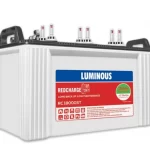You may begin to rethink everything you threw into your kitchen sink as soon as you notice a serious clog. Avoid the temptation to throw coffee grounds or pour frying oil down the drain. A few simple changes will prevent the need to reach for your plunger in the future.
You also won’t have to call a plumber to tackle the problem because the problem will be nipped in the bud before it becomes serious.

Your local water supply will also thank you, as properly disposing of dangerous or tainted goods is ethical and safe. Here, we will focus on the top 4 things that you should never flush or pour down the drain.
Rice and Coffee Grounds
If you have a French press, you may be tempted to pour the remaining coffee down the drain and call it a night. Instead, scoop up the grounds and discard them in your compost bin, as they are naturally biodegradable.
A few grounds may not seem like much, but pouring a few grounds down the drain every day will quickly build up in your plumbing system and cause a clog. As for rice, you have probably noticed that it expands rather quickly when exposed to water.
The last thing you want to do is pour leftover rice down the drain and open up the faucet to clean the sink. Throw out leftover rice in the garbage chute instead.
Medicine and Eggshells
Drugs can contaminate groundwater as well as local water supplies. Your local sewage system is not designed to filter out medication and other chemicals used in prescription or recreational drugs. When you pour these items down your drain, they will eventually reach local ecosystems and communal drinking water where they can harm people and wildlife in the area.
You should call your local pharmacy and ask them if they have a medical waste disposal unit that you can take advantage of.
Some may even provide you with pre-addressed envelopes, allowing you to simply send away any expired or unused pills and syrups to drug companies so that they can be safely incinerated at a local facility.
As for eggshells, they should never be dumped into your drain either. Shell membranes can cause massive clogs over an extended period of time. Instead, why not kill two birds with one stone and compost the eggshells?
If you don’t have any plants and aren’t interested in gardening, simply throw them in the garbage.
Paint
Many people who have too much paint will simply pour their leftover paint down the drain and call it a day. There are many safe and ethical disposal methods that you can use if you have too much paint on your hands.
Simply dumping the paint down the drain will wreak havoc on your delicate pipes. When the paint dries, it will become quite hard, and when it becomes quite hard, your pipes will pay the price.
In addition to clogging your pipes, which may cost hundreds of dollars to unclog and repair, the paint may also pollute the soil and water in the area. Some paint products contain hazardous compounds that contribute to water and air pollution.
If you have unused paint, then you can try selling it. Online auction sites can help you unload unused and unwanted paint. You can also try local classified websites to tackle the problem or sell your colour at a garage sale.
Another option is to donate it to a local charity simply. Many schools and other organizations need paint for arts and crafts projects and housing projects. You can also mix in some cat litter with your colour.
When cat litter is placed in a paint can, the paint found within will harden. Local landfills and trash collection companies will usually accept hardened colours.
Grease and Oil
Grease, fat, and oils can damage your pipes when they are hot, and can clog them when they cool down. Solidified oils may congregate in your septic tank and beneath your property, which may cost hundreds to repair. Call a professional plumber if you deal with oil, fat, and grease pipe blockages.
Safety First
Toilet paper is designed to disintegrate and degrade when exposed to water. It is the only product that should be flushed down the toilet. A drain cleaner may be able to get rid of most sink clogs.
More troublesome clogs may require a snake, a product designed to remove hair, gunk, and other materials from clogged sinks. More serious clogs may need a licensed and bonded plumber.
Fortunately, all of the situations above can easily be avoided altogether if you avoid pouring grease, oil, paint, eggshells, pills, rice, and coffee grounds down your drains.





